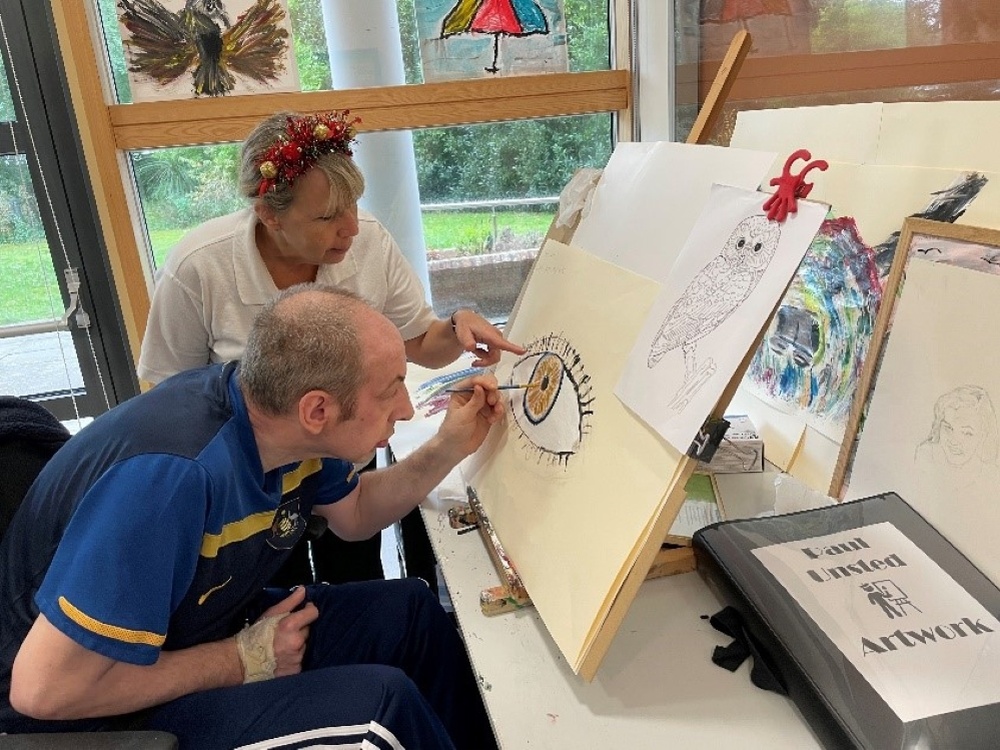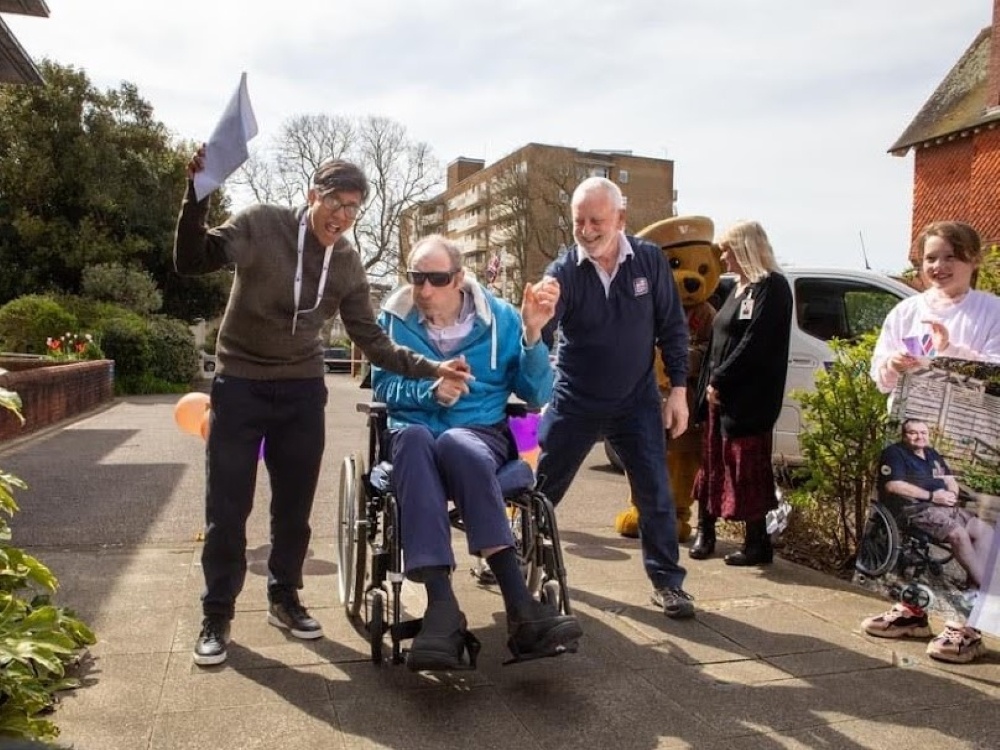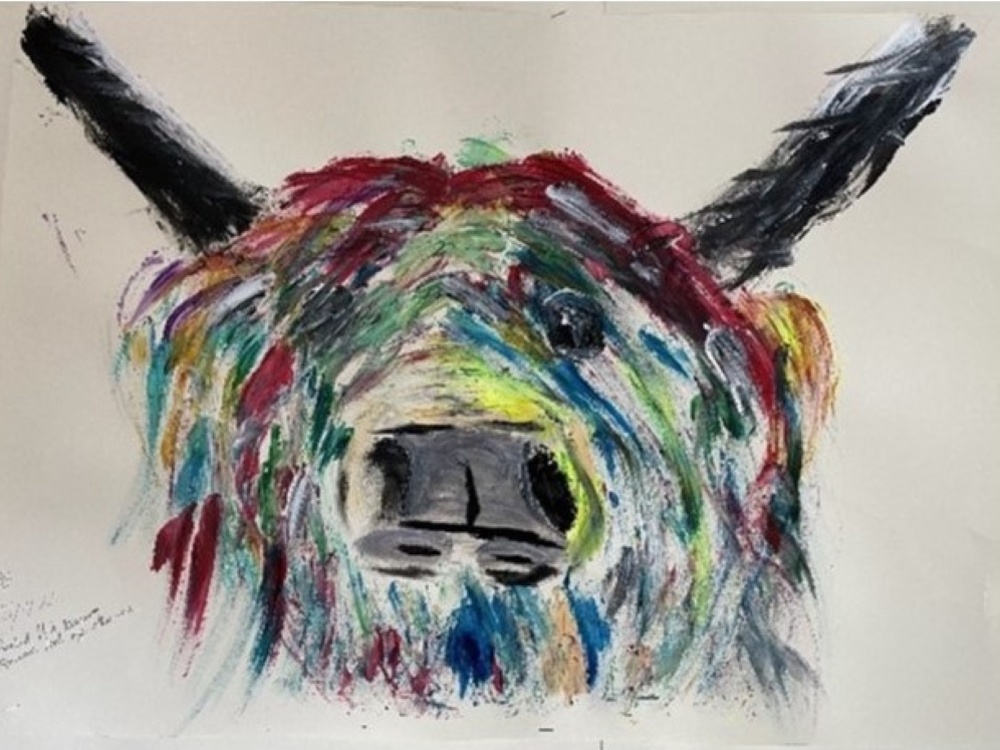Paul hit his lowest point back in 2021, when he was 44 years old. Due to his mitochondrial disease diagnosis, he’d lost around 80% of his vision, was suffering hallucinations and began to be troubled by background noise. He had a PEG tube fitted to ensure he could eat and receive his meds properly, and walking had become a challenge for him.
His declining health meant he was forced to give up his job as a Head Chef, and when he caught COVID-19, the further damage it caused to his wellbeing was the final straw for Paul, and he attempted to take his own life.
On anti-psychosis drugs, and with very little mobility, Paul was eventually admitted to Care for Veterans at Gifford Hall nursing home. It was during his recovery here that he was drawn to the Tuesday morning art therapy sessions organised by the care home.
This creative outlet isn’t without its challenges for Paul though. Because he has very limited vision, he needs to be close to the canvas to see what he’s doing and can only look at small elements of his work at any one time. He’s doubly challenged by being right-handed but having very little mobility in that hand.
Despite these handicaps, since that first art class Paul’s found a safe space in the home’s Wellbeing Hub where, with his easel and art materials and support from tutor Gill, he’s been able to produce works of art that reflect his changing moods – the colour and personality of his good and bad days shine through Paul’s completed paintings.
An unexpected source of support
Paul’s also formed an unexpected connection with John, a volunteer befriender with Care for Veterans who visits him regularly. It’s a somewhat unlikely friendship – as well as John being a Man Utd fan and Paul supporting Chelsea, John has less than 100% hearing and Paul has trouble speaking. Despite these differences, after a cautious start the pair soon formed a close bond, communicating through their own mix of speech and sign language.
And this friendship has helped Paul to live a fuller life, despite his prognosis, and tick off some of the goals on his bucket list. One of these goals was to complete the London Marathon, and John successfully turned their weekly trips out for coffee into a marathon equivalent in short stages with refreshment breaks. It’s a challenge that Paul finally completed in April, crossing the finish line to a medal and certificate and loud applause from other residents and staff.
But at the very top of Paul’s bucket list was ‘I want to write a book about my life’. His primary aim in doing this was to spread awareness of mitochondrial disease and share his experiences with others who may be facing similar challenges.
So John set out to piece together the conversations Paul had had with his counsellor to create a written reflection of his life’s journey. From childhood to meeting his wife and their global travels before settling down to start a family, through to the devastation of his mitochondrial disease diagnosis and the subsequent decline in his health, his story is peppered with family photos and examples of his art therapy that reflect his mood.



